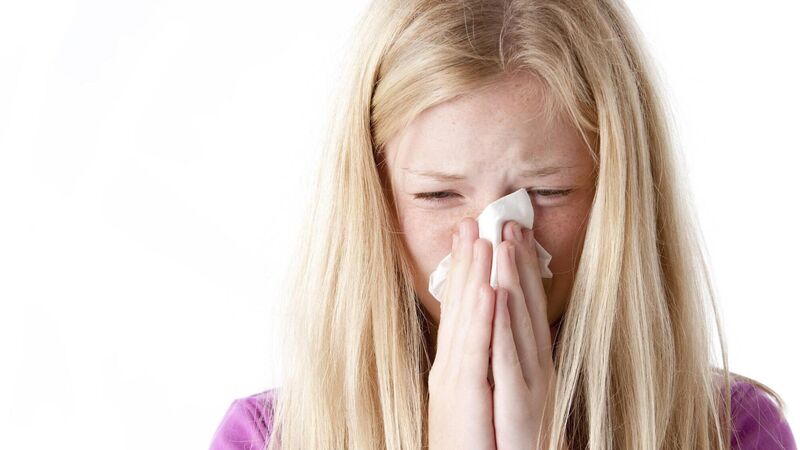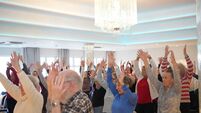Dealing with your child's allergies as pollen count rises

Eimear Hutchinson has signed up to Pollen.ie and gets a weekly email informing her when the pollen count will be high.
OUR third lady is our ‘allergy child’!
She seems to be prone (if that is the correct way of describing it!) to intolerances and allergies, having suffered with them since she was a baby.
Did you know you grow out of an intolerance and into an allergy? That is what happened with us; she had a dairy protein intolerance as a toddler which she grew out of, and she grew into a pollen and dust allergy as a young child.
We are ‘lucky’ in that her allergies and intolerances have not been too severe and I salute parents who deal with the stress of more serious allergies and symptoms on a daily basis.
Spring has finally sprung, which usually heralds a less than gleeful response from those who suffer from hay fever. We are about 18 months into our diagnoses so I will go through what we have been doing to mitigate or minimise the effects of those allergies throughout the Spring and Summer, because it is something that affects a lot of children.
I will throw back briefly to when she was a baby and she initially had a dairy protein intolerance which manifested itself when we weaned her onto cows’ milk around the age of one. Not to be confused with lactose intolerance, because those suffering from that do not manufacture an enzyme called lactase, whereas a milk protein allergy is an abnormal immune system response to cow’s milk.
It took about a year to wean her back onto milk products under the guidance of a consultant paediatrician in the Bons and we have had no issues since, the only hangover is that she absolutely loves cheese because that was one food we could not find a dairy protein free alternative to!
During the period of Covid restrictions, she started developing a blocked nose. We didn’t think much of it and at times our hands were tied in terms of who to go to to seek help. Eventually, once restrictions lifted, I brought her to the Weir Clinic in Bandon for a suite of allergy tests which indicated a pollen and dust allergy. She was put on antihistamines and a steroidal nasal spray which were slow to work but did eventually.
To combat the dust allergy, we introduced some measures to manage it because, like pollen, it is impossible to avoid. We have carpets in her room which we didn’t remove but I do wash and hoover more frequently than I used to. We took anything fluffy out of her room and stored things like toys and clothes in closed boxes or closets. I also wash her sheets at 90 degrees regularly and I don’t dry them outdoors.
With regards to medication, I give her the steroidal nasal spray during the months when the pollen count is high, as well as the antihistamine, which I give periodically, not religiously. I signed up to Pollen.ie so I get a weekly email telling me when the pollen count will be high and I use that to guide the timing of the medication.
During the summer, she wears an acupressure band when the pollen is particularly high, and especially during the morning if she is outside a lot. I put a layer of Vaseline around her nose to try and catch pollen particles before they enter her nose.
We use a saline spray to clean out her nose, especially after activities like horse riding. If she is playing in the grass, she washes her hands when she comes inside and we keep her hair tied back tightly to stop pollen catching in it because she has a lot of hair!
It also means we don’t have to open the windows in the summer and the air coming in is filtered before it reaches the rooms.
We have found travelling on planes seems to affect her more because her ears often give her trouble after a flight, so we are more conscious now of making sure we get rid of any nose blockage before we travel.
She tends to get sore ears during the winter too, again the blocked nose is probably to blame for that. Generally speaking though, they clear up without antibiotics, some neurofen and over the counter ear drops tend to do the trick.







 App?
App?


